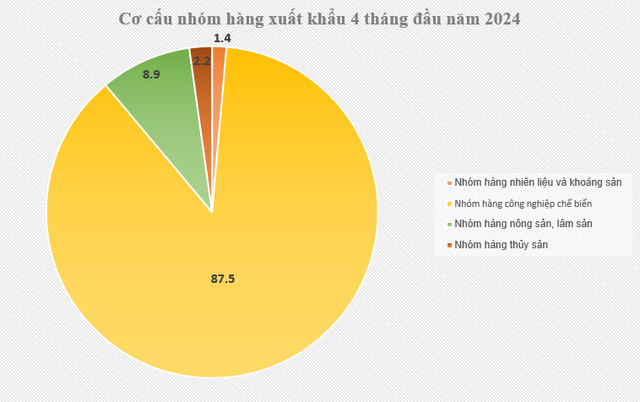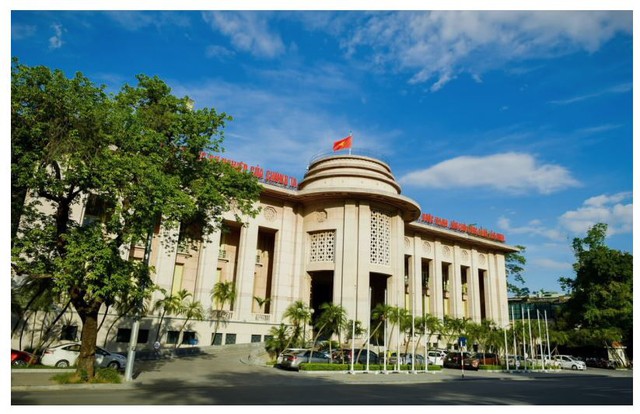After separating from Malaysia in 1965, Singapore gained autonomy in managing its economy, allowing for the implementation of its own economic policies, focusing on developing industries, services, and infrastructure.
The Singapore government has promoted policies to encourage foreign investment, develop new industries, and create a favorable business environment to attract investment.
The island nation has developed an export-oriented economic model, focusing on manufacturing and exporting goods and services to international markets. This has helped Singapore become one of the leading international trading hubs and enhance economic interactions with other countries worldwide.
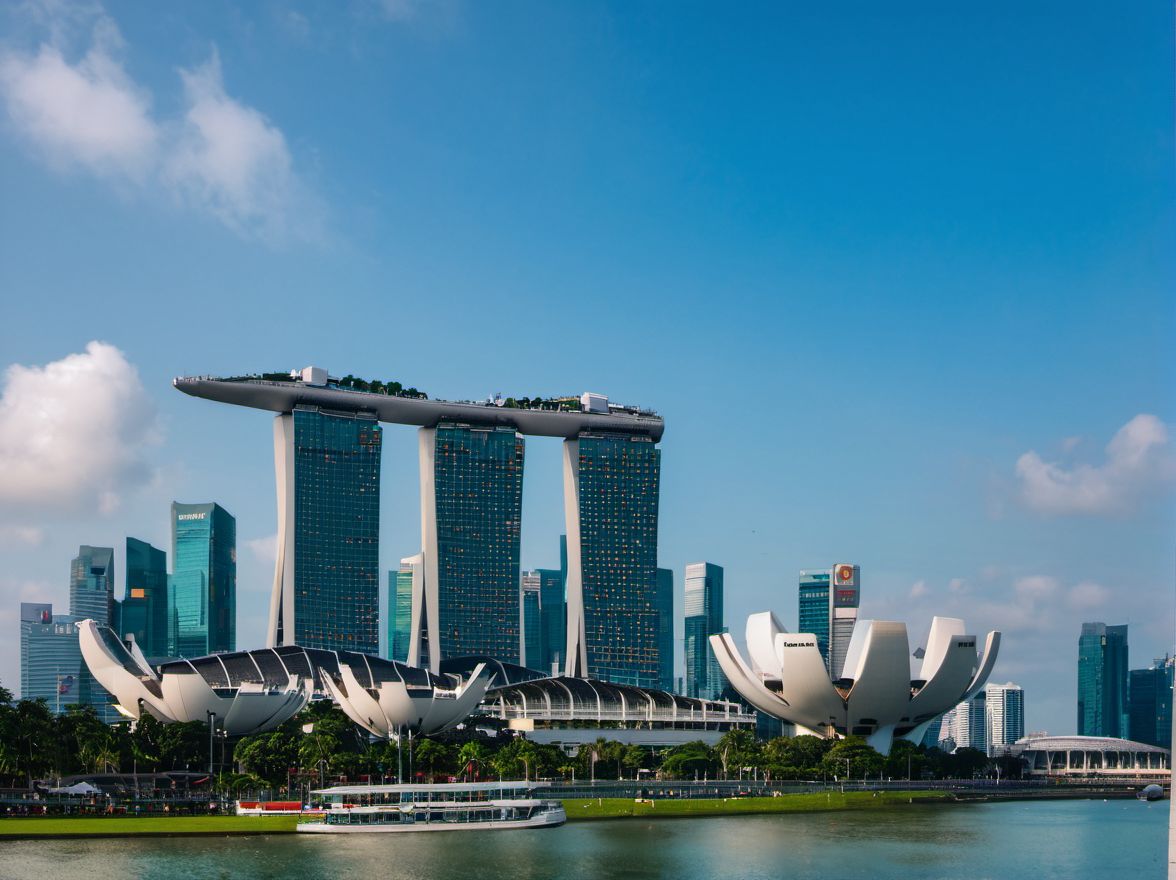
Singapore has made remarkable developments, becoming one of the world’s largest economies. Illustration by AI.
Singapore has also made significant investments in education and training to create a highly skilled and knowledgeable workforce. This has helped increase labor productivity and enhance Singapore’s competitiveness in the international market.
By 2023, Singapore’s GDP per capita is $91,100, according to the World Bank, ranking first in the region and fourth globally. Singapore is considered one of the leading financial, commercial, and business centers in the world. The country offers a favorable business environment, sound tax policies, and modern financial and logistic systems.
Singapore’s Economy Thrives on Open and Favorable Policies
With its strategic location as an important deep-water port and an international trading hub, Singapore is one of the largest commodity ports in the world, making it a global trading center.
Moreover, Singapore’s open and favorabl
e economic policies have created a conducive environment for investment and business activities. Political stability and the rule of law also add to Singapore’s attractiveness to investors.
A key driver of the economy is the ease of setting up businesses in Singapore relative to many other countries. This is supported by a favorable business environment, transparent and efficient legal regulations, as well as support from the government and regulatory agencies.
Singapore maintains low taxes compared to many other countries, reducing the financial burden on new businesses and creating a favorable business environment. From 2020, the corporate tax rate in Singapore is 17%, but it can be reduced depending on government incentives.
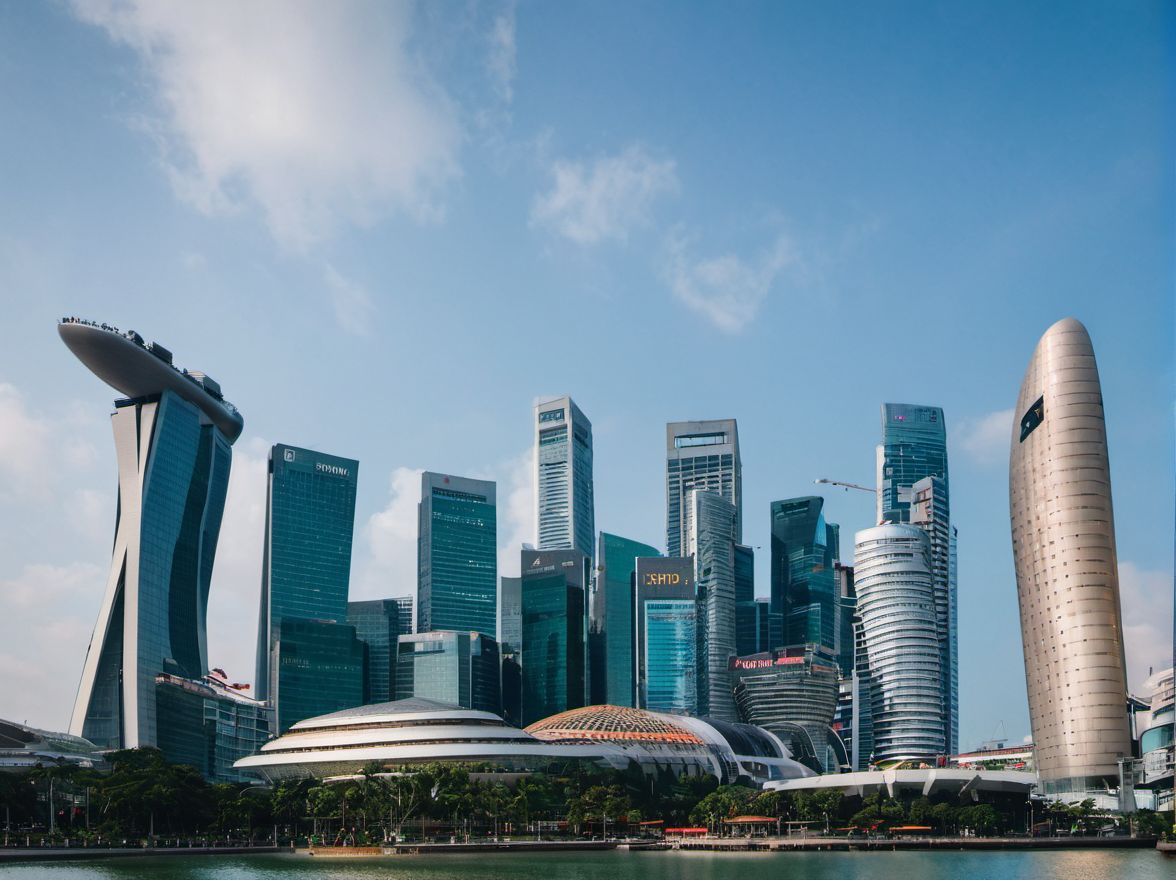
Singapore has simplified business establishment policies. The presence of leading corporations headquartered here has helped reinforce Singapore’s economic position. Illustration by AI.
Singapore is home to leading companies such as DBS Group Holdings (the leading bank in Singapore and Southeast Asia), Singapore Telecommunications Limited (Singtel, telecommunications), Jardine Matheson Holdings (conglomerate), United Overseas Bank Limited (UOB, bank), Singapore Airlines Limited (SIA, world-class airline) …
Singapore has a modern and developed financial and logistic system, including banks, financial centers, seaports, and international airports. The development of this infrastructure facilitates business and international trade activities.
Singapore also promotes technological innovation through research and development support, as well as creating a conducive environment for startups and new technologies. This helps Singapore maintain competitiveness and continue to thrive in today’s global business environment.
Challenges for Singapore’s Economy
However, to sustain its development, Singapore needs to address and overcome several challenges. Specifically, in recent years, Singapore has encountered challenges in economic growth, including slowdowns in sectors such as tourism and services. To overcome this, Singapore may need to diversify its economy and seek new resources to stimulate growth.
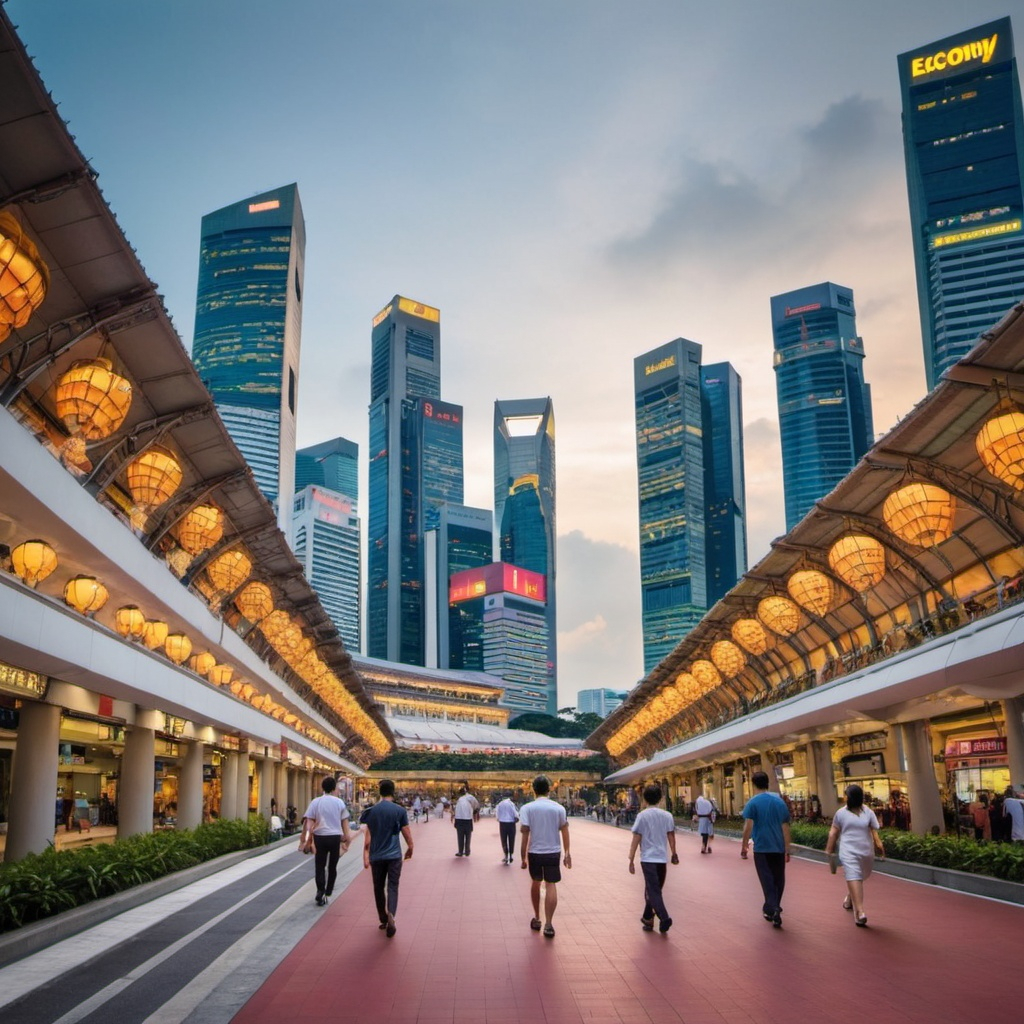
Urbanization and economic development can generate environmental issues, transportation challenges, and affect the quality of life in Singapore. Illustration by AI.
Urbanization and economic development can generate environmental issues, transportation challenges, and affect the quality of life. Singapore needs to address these challenges by investing in infrastructure, environmental protection measures, and building sustainable communities.
To maintain competitiveness and economic development, Singapore needs to continue investing in technological innovation and creativity. Supporting research and development, as well as providing a favorable environment for startups and new technologies, will help Singapore thrive in today’s global business environment.
Singapore needs to enhance international cooperation and trade, especially in the context of global dynamics such as the US-China trade war and the COVID-19 pandemic. Expanding export markets and collaborating with international partners will create new opportunities for Singapore’s economic growth.










